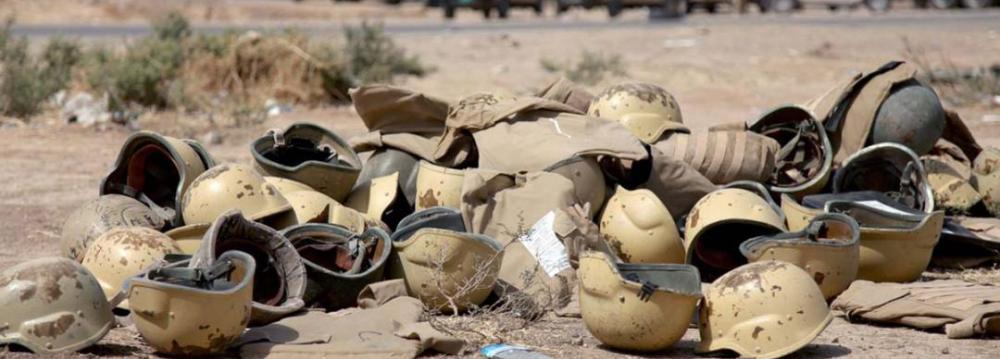Iraq’s Prime Minister Haider al-Abadi on Sunday ordered his Cabinet reduced from 33 members to just 22, consolidating the body as part of a major reform push in response to mass protests against corruption and poor governance.
The decision, announced by his office, would eliminate four ministries, including those of human rights and women’s affairs, and consolidate others. The announcement did not mention whether there would be any changes to the remaining ministries, AP reported.
The move follows a far-reaching reform plan approved by parliament last week that eliminated the country’s three vice presidencies and three deputy prime ministers.
The reform plan cut positions held by a number of prominent Iraqi politicians, including Nouri al-Maliki, prime minister of Iraq for eight years, who stepped aside a year ago and was appointed to the largely symbolic role of vice president.
Iraqis have held massive protests in recent weeks against corruption and poor government services, focusing in particular on power outages that have made a recent heat wave even more unbearable. In response, Abadi proposed the first round of reforms targeting reckless spending on government officials.
Iraq’s top Shia cleric, Grand Ayatollah Ali al-Sistani, has lent his support to demands for reform, and parliament unanimously approved the wider reform package last week in a dramatic show of unity for a country riven with sectarian and political rivalries.
Iraq is struggling to roll back the Islamic State insurgency that swept across the border from Syria last summer and seized around a third of the country.
IS militants attacked Iraqi troops on Sunday outside the militant-held city of Fallujah, killing at least 17 soldiers.
Maliki Blamed for Mosul Defeat
An Iraqi parliamentary panel called Sunday for dozens of security and political officials, including Maliki, to be indicted in connection with the fall of the northern city of Mosul to IS militants.
Sources said that Maliki’s naming came after the committee heard numerous testimonies of military commanders who said that the former prime minister had ordered the withdrawal of troops from military bases in Mosul.
In the panel’s report, the committee also placed responsibility for the June 2014 defeat with former Mosul governor Atheel al-Nujaifi, former acting defense minister Sadoun al-Dulaimi, former army chief General Babakir Zebari and Lieutenant General Mahdi al-Gharrawi, former operational commander of Nineveh Province, of which Mosul is the capital.
Others accused include Nineveh police commander Major General Khalid Hamdani and former deputy interior minister Adnan al-Assadi.
There has been no official accounting of how Mosul was lost, and who gave the order to abandon the fight. The fall of the city, Iraq’s second-largest, was a turning point in IS’ seizure of large swathes of the country’s north and west in a sweep across the Syrian border last year.
An investigation by Reuters in October showed how troop shortages in Mosul and infighting among top officers and Iraqi political leaders played into IS’ hands and fueled panic that led to the city’s abandonment.
Maliki has accused unnamed countries, commanders and rival politicians of plotting the fall of Mosul. The parliamentary report was approved by 16 of the panel’s 24 members, lawmaker Muhsin Sadoun said.
“No one is above the law and accountability to the people,” said Parliament Speaker Saleem al-Jabouri in a statement upon receiving the report. “The judiciary will punish perpetrators and delinquents.”


